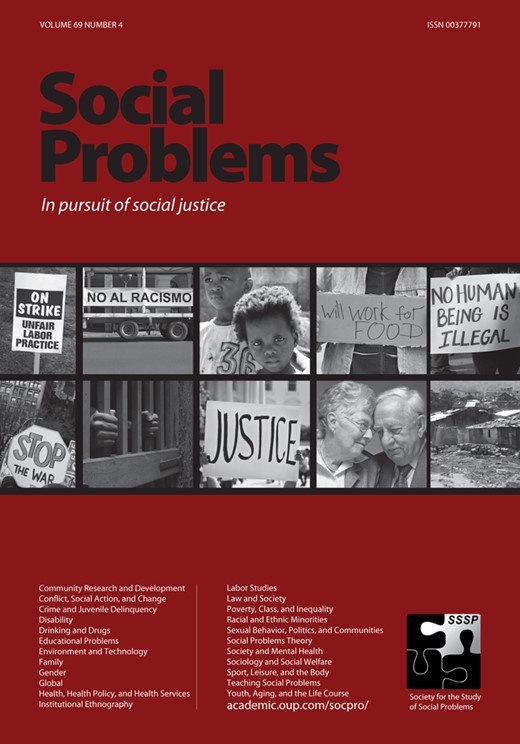-
Views
-
Cite
Cite
Sylwia J Piatkowska, Brian J Stults, Brexit, Terrorist Attacks, and Hate Crime: A Longitudinal Analysis, Social Problems, Volume 69, Issue 4, November 2022, Pages 968–996, https://doi.org/10.1093/socpro/spab005
Close - Share Icon Share
Abstract
Drawing on theories of intergroup conflict and research on political legitimization of prejudice and crime motivated by bias, this study examines the temporal clustering of hate crimes in the aftermath of triggering events in the UK. In addition to domestic and nondomestic terrorist attacks, we consider the effects of the EU referendum widely known as Brexit. Consistent with previous work, the results reveal sharp increases of hate crimes in the aftermath of the antecedent events. However, we found that the effects of the EU referendum were more prolonged and more intense than the effects of the other triggering events. Moreover, the effects of domestic events are generally significant and stronger in magnitude than nondomestic events. Finally, the results show that the duration and decay of the effects of terrorist attacks on hate crimes generally mirror the severity of the galvanizing event. Taken together, our findings underscore the role of the EU referendum in explaining dramatic increases in crime motivated by bias. Accordingly, they are of particular importance to politicians and policy makers and have implications that go beyond the case of Brexit.





